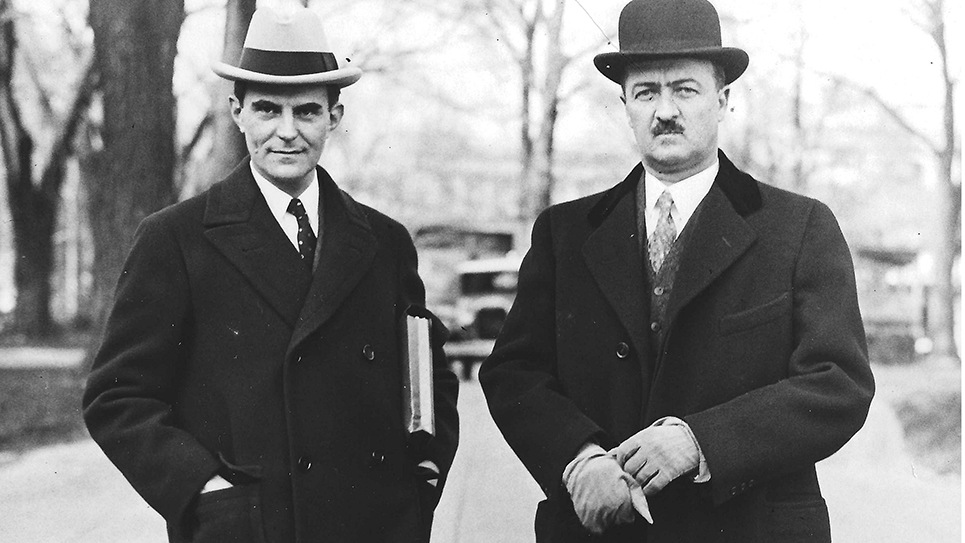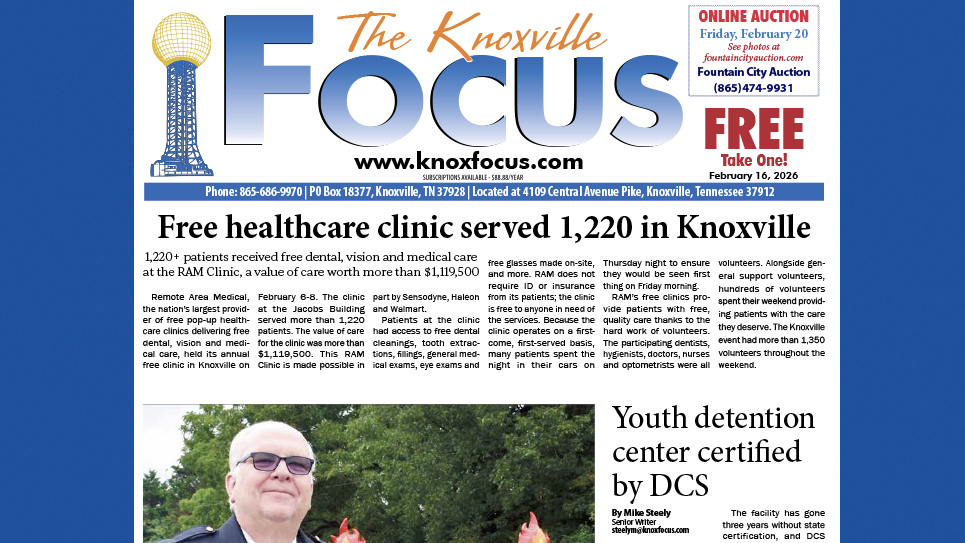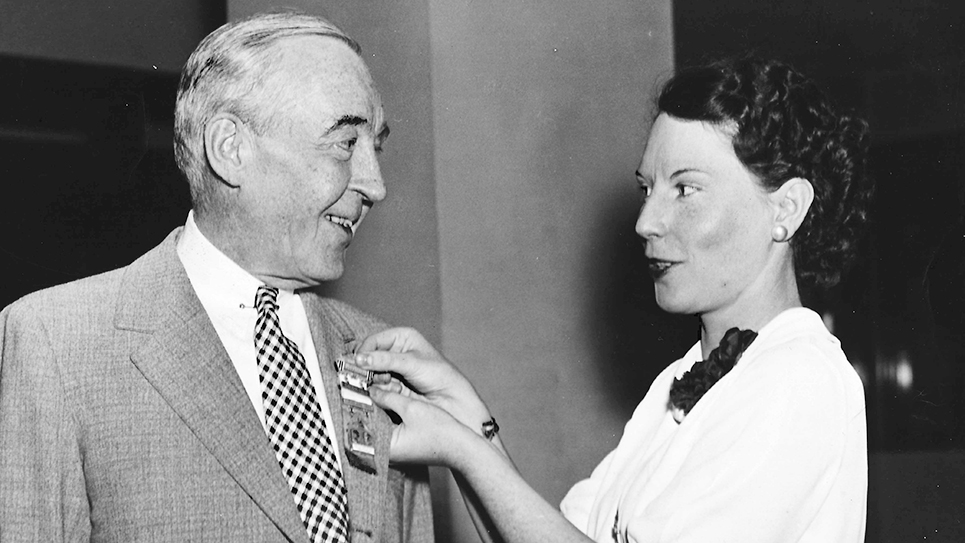Delaware’s Least-Known Prominent Citizen
Clayton Douglass Buck
By Ray Hill
If ever there was a patrician in politics, it was Clayton Douglass Buck, a descendant of the State of Delaware’s oldest families. Even then, Delaware, because of its laws, was home to more corporations than any other state in the union. Buck had married a DuPont and made his home in the house where he was born, Buena Vista, near New Castle. TIME magazine noted Buck had been called Delaware’s “least-known prominent citizen.” When profiled as a new member of the United States Senate, Buck was described by TIME as “a shy, reserved engineer, banker and gentleman farmer.” A conservative Republican, C. Douglass Buck served Delaware during two of America’s greatest crises: the Great Depression and the Second World War.
Buck was a tall and dignified man who wore a neat moustache. While in Washington, D.C., Senator Buck arrived for social functions oftentimes formally dressed in a silk hat and an opera cloak. C. Douglass Buck was a high-minded man of principles and determination. Buck once stated what well could have been considered his credo: “The very essence of free government consists in considering office as a public trust, bestowed for the good of the country and not for the benefit of an individual or a party.”
Buck’s entire life was one of public service while tending to his business concerns. Buck’s home, Buena Vista, had been built by his great-uncle, John Clayton, who had served as a U.S. senator from Delaware, as well as secretary of state under President Zachary Taylor. Buck’s wife was the daughter of a U.S. senator, T. Coleman DuPont.
Having studied chemical engineering, Buck left the university one June afternoon in 1911 for work. The following day, he got a job to help build the highway then being built by T. Coleman DuPont, his future father-in-law. The DuPont Highway ran the length of the State of Delaware, and Buena Vista looked out over its lawns to that same road.
Buck served during the First World War as an engineer, and when he returned home to Delaware, he joined the State Highway Department. In 1922, C. Douglass Buck was named chief engineer for the State of Delaware, a post he held until he ran for governor in 1928. Only 38 years old in 1928, Buck had won the confidence of Delaware’s Republican leaders. Buck won easily in a very Republican year. Buck apparently also won the confidence of the people of Delaware as he was one of only two Republican governors reelected in 1932 during the Democratic landslide that brought Franklin D. Roosevelt to office. Buck was the first governor of Delaware to be reelected since the Civil War.
Once elected, Buck said in his inaugural address, “I have assumed the head of a great business– a business in many respects like that of a large corporation– in which the state officials are the officers and the people are the stockholders. My ambition is to direct a sound business administration.”
As governor, Buck lived up to his word and conducted his administration accordingly. Buck was not above giving his fellow Republicans what he considered to be a well-deserved rebuke. Dismayed when legislative Republicans had hired too many aides in the governor’s opinion, Buck snapped, “Political expedience that is purchased with public confidence is political suicide.”
Up until Buck’s administration, roads in Delaware had largely been a concern for local counties. Governor Buck brought state highways under the jurisdiction of the State Highway Department. Buck reduced Delaware’s debt from $12 million to $3 million and instituted pensions for the elderly at a time when there was no Social Security. When the Depression hit months after he had assumed office, Governor Buck squeezed out every resource of the state government to provide jobs for able-bodied people.
Governor Buck was in Washington, attending the inauguration for President-Elect Roosevelt, when the “bank holiday” was issued by the incoming chief executive. The banks were closed as many had failed (at a time before deposit insurance, meaning people lost their savings), and the “holiday” was intended to keep more from failing. Buck issued a statement urging the people of Delaware to support the new president during the financial crisis. Governor Buck also did his best to reassure the people of Delaware that the state’s banks were sound. Buck, ever mindful of spending, huddled with members of his administration to find ways to provide relief to citizens without raising taxes.
As the Depression deepened, the pay-as-you-go Governor Buck told Delaware’s state legislature he was shocked to have witnessed “the most amazing psychology which I have encountered while in public office.” Buck was referencing the dismissal of the idea of “economy and thrift” in government. There had been a time when economy and thrift had been viewed by the public as “exemplary and commendable traits,” both of which seemed to have been discarded for “a movement” which “calls for and approves unrestricted spending of public money.” Governor Buck said he was astonished because it appeared “little heed is given to the need or value of the spending.”
Having served two four-year terms as governor, C. Douglass Buck was term-limited in 1936. Once out of office, the former governor became the president of what was then known as the Equitable Trust Company; it later became the Bank of Delaware.
During the New Deal, both of Delaware’s Republican United States senators lost reelection to Democrats. Senator James H. Hughes had beaten Senator Daniel O. Hastings in 1936 at the peak of the New Deal. The 75-year-old Hughes was insistent upon running for reelection after suffering a fall and fracturing his hip. The state Democratic organization in Delaware was unhappy with Hughes for apparently not voting 100% of the time with President Roosevelt and the New Deal. In a hard-fought nominating convention, Senator Hughes was edged out by seven votes.
Former Governor C. Douglass Buck was easily nominated at the GOP convention, and his acceptance speech was the kickoff of the Republican campaign in Delaware that fall. In that speech, Buck was careful to say he had not sought to be nominated for the U.S. Senate and said, “The thought of living in Washington is not pleasing to my family nor to me and to reside there entails a sacrifice.” The former governor acknowledged, “That sounds ungrateful but it is not meant to be and I realize that at such a critical time, we must be ready and willing to go wherever we can serve our country.”
The Democratic candidate for the U.S. Senate in Delaware, E. Ennalls Berl, campaigned as an all-out supporter of President Roosevelt. Berl said it was vital that those candidates who would “fully cooperate” with FDR be elected to the Senate. “For myself, I have pledged an absolute and unreserved cooperation with my commander-in-chief to this end,” Berl said. The Democrat noted C. Douglass Buck had been at times “critical” of President Roosevelt, which he believed “must disable any person who uttered them from giving that full degree of cooperation which is indispensable if the lives of many of our boys are not to be the price of obstructionism and criticism.”
It was not an argument accepted by the people of Delaware. Former Governor C. Douglass Buck won the senatorial race with better than 54% of the ballots cast, carrying all three of Delaware’s counties.
Once in the Senate, Buck continued to be a workhorse as opposed to a show horse and concentrated on his committee work and tending to the needs of Delaware and her people. Senator Buck became a good friend of Ohio’s Robert A. Taft and supported the Ohioan’s presidential candidacies in both 1948 and 1952.
Senator Buck sought reelection in 1948. The 1948 election is famous for the underdog presidential campaign of President Harry Truman, whom almost nobody believed could be elected. Thomas E. Dewey, the GOP presidential nominee and the governor of New York, was thought to be as good as elected by virtually every political observer in the country. Dewey campaigned as if he were the incumbent, careful to speak in generalities that could upset nobody, while Truman conducted a vociferous and hard-hitting campaign against the governor and the “Do-nothing Congress,” which had a Republican majority. That Congress actually accomplished quite a lot in terms of legislative achievements, but because of Truman’s repetition, the impression is left lingering to this day.
So, too, did the political prognosticators believe the House of Representatives and the United States Senate would be won by the Republicans. As the fall campaign began, there were a number of disquieting reports from across the country that several GOP incumbents appeared to be in deep political trouble. Dewey had arrogantly refused to campaign with some GOP senators because he thought them too conservative or isolationist.
Senator C. Douglass Buck faced a farmer and businessman named J. Allen Frear, a mild and unassuming young man who looked more like an accountant than a U.S. senator. Senator Buck trumpeted the accomplishments of the Republican Congress and hailed the passage of the Taft-Hartley Act. When Buck was critical of the New Deal and Truman’s Fair Deal, Allen Frear wondered if the senator was “advocating a return to the policies and theories of the Hoover administration.”
Earl Warren, governor of California and the vice-presidential running mate of Thomas E. Dewey, stopped in Delaware to campaign for Senator C. Douglass Buck. The senator made a series of fifteen-minute radio talks on various topics throughout the fall campaign. As the election returns began to trickle in, it became readily apparent that Republicans across the country were in trouble. Truman was beating Dewey and, by the time all the votes were tallied, Republicans lost seventy-five seats in the House and nine seats in the U.S. Senate. One of those seats was that of C. Douglass Buck, who lost narrowly to J. Allen Frear. Buck’s defeat was another genuine surprise to most, as his Senate seat had never been viewed as one of those that might be lost to the Democrats.
Senator Buck displayed no bitterness with his loss and promptly sent a telegram of congratulations to his opponent. Allen Frear replied, “Thank you for your best wishes. I would like to congratulate you on the superior quality of your campaign, truly the mark of a great man.”
Senator Buck was philosophical in defeat, noting, “When you carry the ball, you’re bound to be tackled some time.” The senator told reporters he likely would not seek public office again, but stressed that his loss in the recent election “has nothing to do with this decision.” “I was tackled this time, but I have carried the ball four times and I guess I had my share,” Buck acknowledged.
The senator said he and Mrs. Buck intended to travel abroad, and he would resume his chairmanship of the Equitable Trust Company. The former senator remained active inside Delaware’s Republican Party. Buck hosted a luncheon at Buena Vista for eleven of Delaware’s twelve delegates to the Republican National Convention in 1952 with Senator Bob Taft.
However, the former senator was not done with public office. 1952 saw Congressman J. Caleb Boggs elected as Delaware’s governor. Boggs had survived the 1948 Democratic landslide and had worked in Congress with Senator Buck. Upon his election as Delaware’s chief executive, Boggs pressed the former senator to serve as State Tax Commissioner. Buck accepted and served in the post for four years. Buck turned down a second appointment in 1957, saying he thought he had earned the right to retire from public life.
The former governor became ill in late 1964 and died in the same home where he had been born 74 years earlier.
In his will, C. Douglas Buck proposed to sell Buena Vista to the State of Delaware for the sum of $1.00. The original deed, signed by William Penn, to John Donaldson and dated 1699, was framed and kept in the house by Senator Buck.
© 2025 Ray Hill







